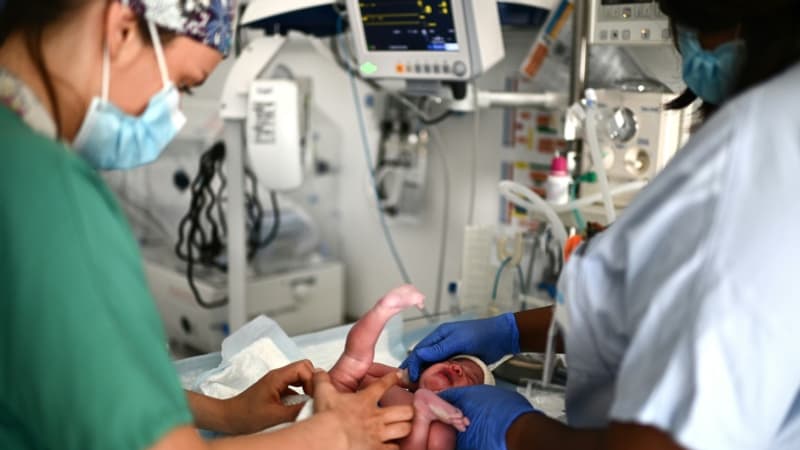OB-GYNs said Friday they were “very concerned” about the operation of “current and future” maternity wards, calling for fewer and better-paid on-calls to stop the “unattractiveness of delivery room work.”
“We must restore the attractiveness of work in the delivery room despite its hard work, which must be recognized,” stressed the president of the French National College of Gynecologists and Obstetricians (CNGOF), Dr. Joëlle, during a press conference. Belaisch-Allart.
“Tensions are important”
The scientific society poses a trompe l’oeil situation. It is true that the number of obstetrician-gynecologists has been constantly increasing for ten years and should continue to grow, from 5,200 in 2021 to more than 6,600 in 2030. In addition, the age pyramid of this specialty tends to rejuvenate.
And yet, “the tensions are important”, estimates Pr Olivier Morel (CHU of Nancy), who has just coordinated a report on the continuity of care in gynecology-obstetrics.
Vacancies “practically everywhere”, significant use of temporary workers, non-compliance with security breaks for professionals, closure of structures… The difficulties listed are diverse.
To explain them, the CNGOF highlights the evolution of exercise methods and the expectations of a profession in the process of feminization and subject to a high risk of “burn out”, professional exhaustion. Only half of OB/GYN interns want to continue with a job, and most young practitioners are moving into part-time work, the scientific society notes.
Call to increase the number of interns trained per year
To increase the attractiveness of the delivery room, the professional organization defends the principle of large well-staffed structures of gynecologists-obstetricians: at least seven doctors per team, to guarantee a maximum of five shifts per person per month.
The CNGOF also asks to reach “as soon as possible” the goal of 260 trainees trained per year, compared to the current 220, “adapting their territorial distribution to training capacities.”
It also calls for the revaluation of the price of the guards, who currently pay 250 euros for 14 consecutive hours, and the cessation of the guards when they do not intervene in addition to guards.
The report of the demography commission created by the CNGOF and the College of Gynecology and Obstetrics Professors (CEGO) was presented “at the end of September” to the Minister of Health, François Braun. “Since then, we haven’t seen anything coming,” laments Dr. Belaïsch-Allart.
Source: BFM TV


